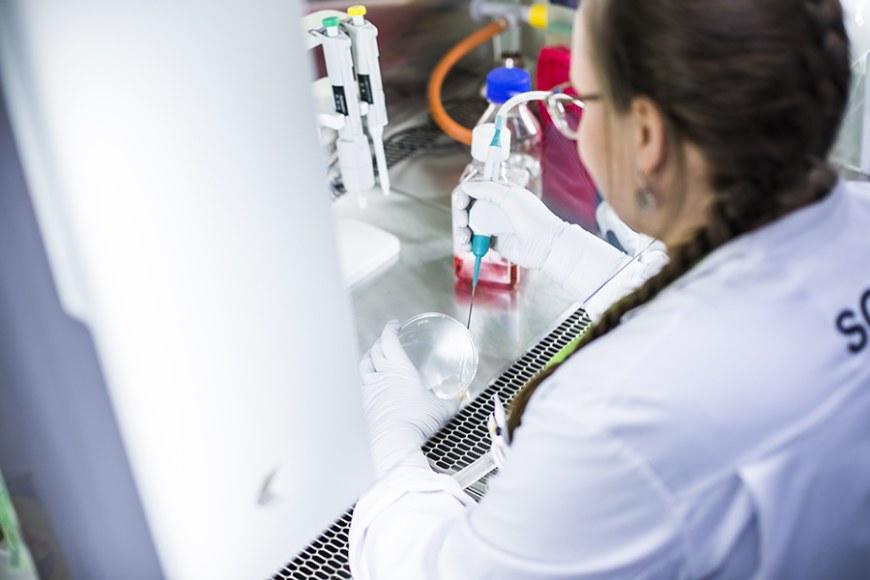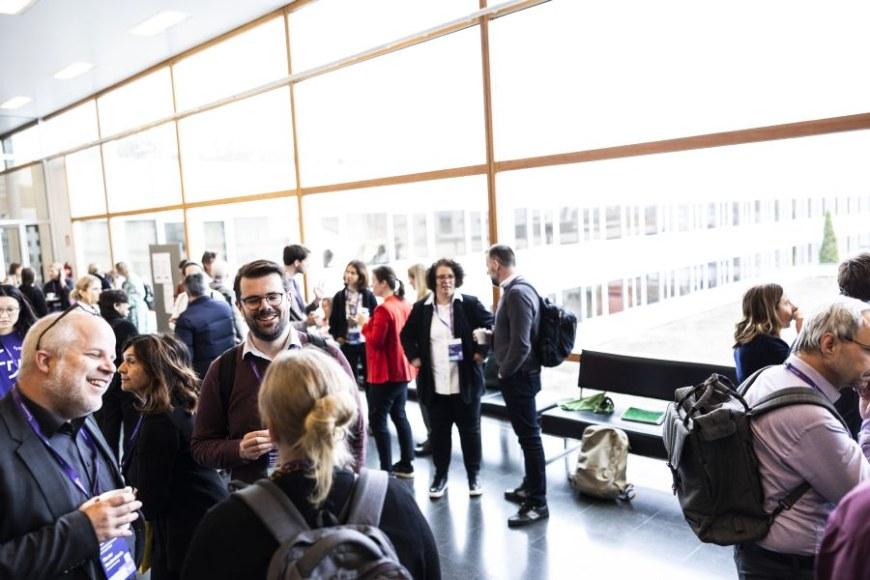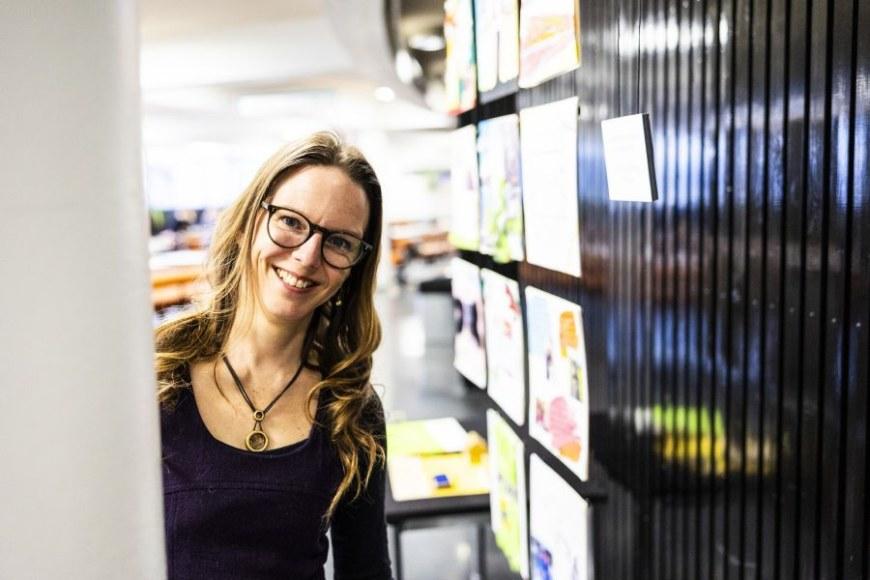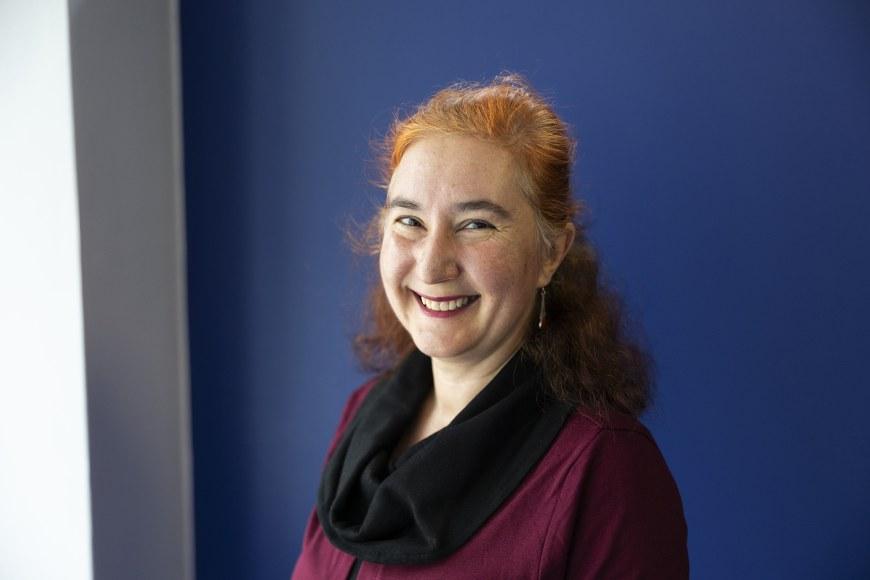Researchers and doctors fight cancer together at Tays Cancer Centre

“In the future, we must work together to keep up with the developments in modern care,” says Director and Chief Physician Annika Auranen from the Cancer Centre.
“We are undertaking clinical drug trials at the hospital and our goal is to do that in collaboration with basic medical research," Auranen says.
Easy information sharing
The aim of Tays Cancer Centre is to speed up the flow of information between researchers and clinicians so that the new interventions arising from research may benefit the patients immediately.
Established in 2018, Tays Cancer Centre organises monthly seminars where cancer researchers present their latest findings to other researchers and oncologists.
The Centre is also starting research forums in order to bring together researchers engaged in basic cancer research, doctors, and clinical researchers who focus on particular types of cancer. They will share their work, exchange information, and plan new collaborative studies. Basic researchers may also visit the hospital wards to learn about treatments and treatment facilities.
“In cancer research, basic researchers’ work is based on the idea that their work should eventually benefit cancer patients either in diagnostics, the choice of treatment options or the development of treatments,” says Special Adviser Merja Helenius from the Cancer Centre.
Three hundred cancer researchers work at Tampere University
Tays Cancer Centre comprises 400 cancer researchers of whom 300 work at Tampere University and 100 at Tampere University Hospital.
There are more than twenty cancer research groups at the University. Some of them focus entirely on cancer while others are doing research on closely related fields.
Epidemiological and psychosocial cancer research and HPV vaccine development are also parts of the University’s cancer research.
The clinical cancer studies conducted at the hospital are mainly drug trials that investigate the efficacy of medicines under development, for which cancer patients volunteer with informed consent. At the same time, these new drugs become available to patients, for example, in cases where other drug therapies are not producing the desired results.
Tampere University Hospital has research units that concentrate on cancer medication research; FONK focuses on early stage cancer medication and PeeTU on paediatric early phase trials.
Translational research extends to the wards
Translational research is among the largest collaborative studies at the Cancer Centre. It extends from the basic research laboratories to the studies research doctors conduct on patients at the hospital.
Translational research is undertaken at the Cancer Centre to develop treatments for prostate cancer, gynaecological cancers, breast cancer, intestinal cancers, brain tumours, and childhood leukaemia.
“In the long run, translational research should expand to all cancers at least partly,” Helenius says.
Co-operation may improve funding opportunities
Docent Olli Lohi, who leads a research project on paediatric blood diseases and cancers, works as Chief Specialist at the university hospital.
“I have always worked in our common area,” says Lohi who finds the centre model very beneficial.
According to Lohi, the main benefit of the Centre is the increasing co-operation between researchers and medical practitioners, which makes it more than a sum of its parts.
“From a researcher’s perspective, collaboration is likely to improve opportunities for securing research funding. Some synergies may also be found in the support services,” Lohi says.
According to him, collaboration that is more systematic may also alleviate the concerns there have been over decreasing clinical research in the recent years.
A national cancer centre established
Twenty hospital districts and five universities recently signed an agreement on the establishment of the Finnish National Cancer Centre (FINAC) and its coordinating unit.
The operations of FICAN have already started in five regional cancer centres. The coordinating unit will be founded at Helsinki University Hospital as soon as possible.
Already In 2009, the board of the Cancer Society of Finland chaired by Pirkko-Liisa Kellokumpu-Lehtinen proposed the establishment of a national cancer centre.
“Cancer centres are now used as a benchmark to develop research and treatments in other diseases. The national centre and the regional centres can also network internationally, which some have already done. In addition to research and treatments, education and national guidelines are an important part of FICAN’s operations,” says Kellokumpu-Lehtinen who is currently professor emerita of radiology and tumour therapies at Tampere University.
In the national collaboration structure, Tays Cancer Centre is the central part of the regional cancer centre FICAN Mid that covers the Tampere and South Ostrobothnia regions.





